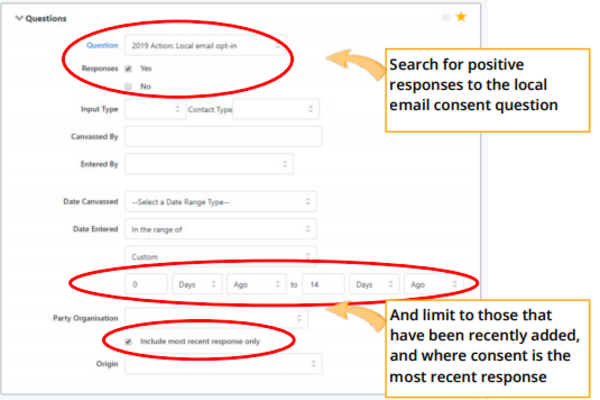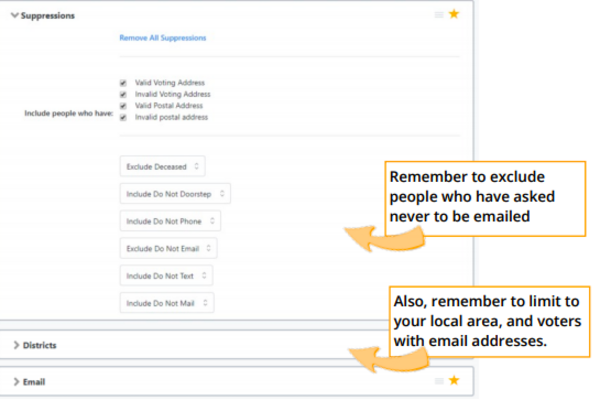Gathering Consent to Collect Personal Data
Connect Toolkit
Storing Consent
This guide will take you through the steps you need to follow to gather consent data in Connect. The General Data Protection Regulation (GDPR) standardises legislation on data protection and mandates that organisations anywhere in the world processing EU citizen data take appropriate measure to better protect it.
Gathering Consent Information
Under GDPR it is important to show that consent has been collected properly from voters and to make available relevant information on how that data will be processed at the time of collection. To do this, any script that is gathering data should also contain a Fair Processing Notice (FPN). There is a different FPN depending on whether the data was collected face to face, on the phone or on a printed or online survey. If you are collecting email addresses and / or phone numbers you also need a specific opt-in question to allow us to use those contact details in the future.
The three FPNs and the three opt-in questions (for email, phone calls and text messages) are all available in Connect and shared with your local party organisation. They also appear in the national scripts. If you are using a local script you'll need to make sure they appear there as well. It is not essential that you record a response to the FPN question, but it is law that you offer the voter a leaflet with the text on when you canvass them (or read out the phone FPN when telephone canvassing).
Scripts
The national scripts have been amended to contain the relevant questions. If you’re creating your own scripts then look for the questions starting with the current electoral cycle e.g. 2020 and the question type of Action.
Collecting the following types of information requires explicit consent:
● Opt-in for emails/phone calls/text messages
● Recording special category data against them - e.g. racial or ethnic origin, health or sexual orientation. For a full list, see the party’s GDPR guidance.
We do not require explicit consent to record political views even though it is classed as special category data under GDPR. This is an exception for political parties.
Telephone Opt-Ins and TPS
If we have a properly consented opt-in for phone calls for a voter, then this overrides TPS registration (the Telephone Preference Service records people who have opted out of marketing phone calls and has to be respected by political parties as well). The TPS target pool allows you to search for people who have given their consent or are not TPS registered. More and more people are now TPS registered so it is very important that you collect as many numbers with consents as possible if we are to continue to contact the number of voters we need to at election time. You can read more about creating lists for phone canvassing in the section of the guide on creating virtual phone banks.
Copying Emails to Your Email Tool
Your email tool, whether it’s NationBuilder, Mailchimp, or Prater Raines is your master place for storing email consent data. If you’ve also been gathering email addresses via doorstep and phone campaigning in Connect, then you will need to transfer newly gathered email addresses to your email tool. We do not expect Connect to store the current consent for a local party to email every voter. Instead, it should be used to find recently acquired email addresses that should be added to your email tool.

Searching for Recently Consent Email Addresses

To find the voters who have recently consented to receiving email, go to Create a List in Connect and follow the steps on the left.
Exporting the List
Your Connect Manager (or a Deputy) can use the export button to create a CSV file for uploading into your email tool. They should use the standard text export, making sure the preferred email field is on the format.
